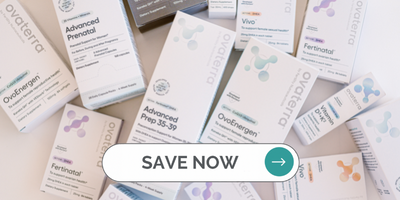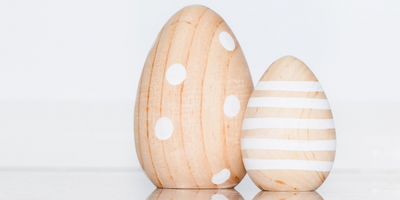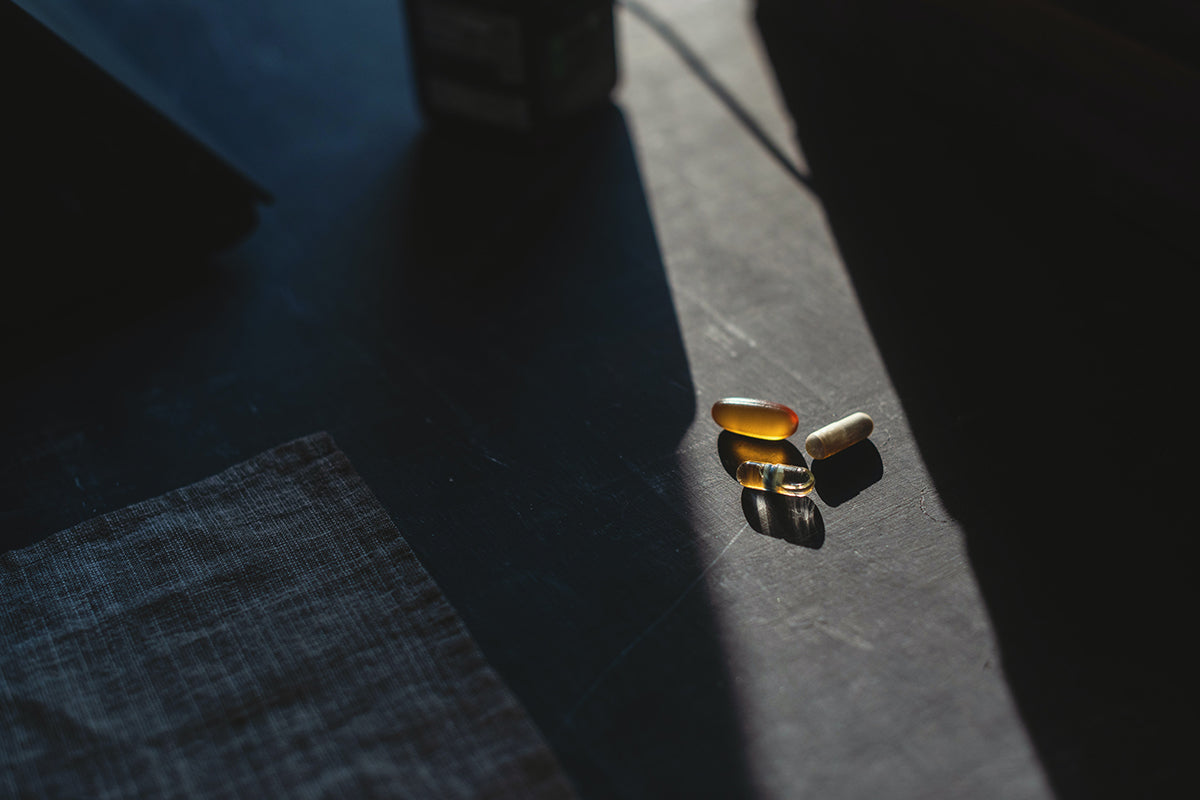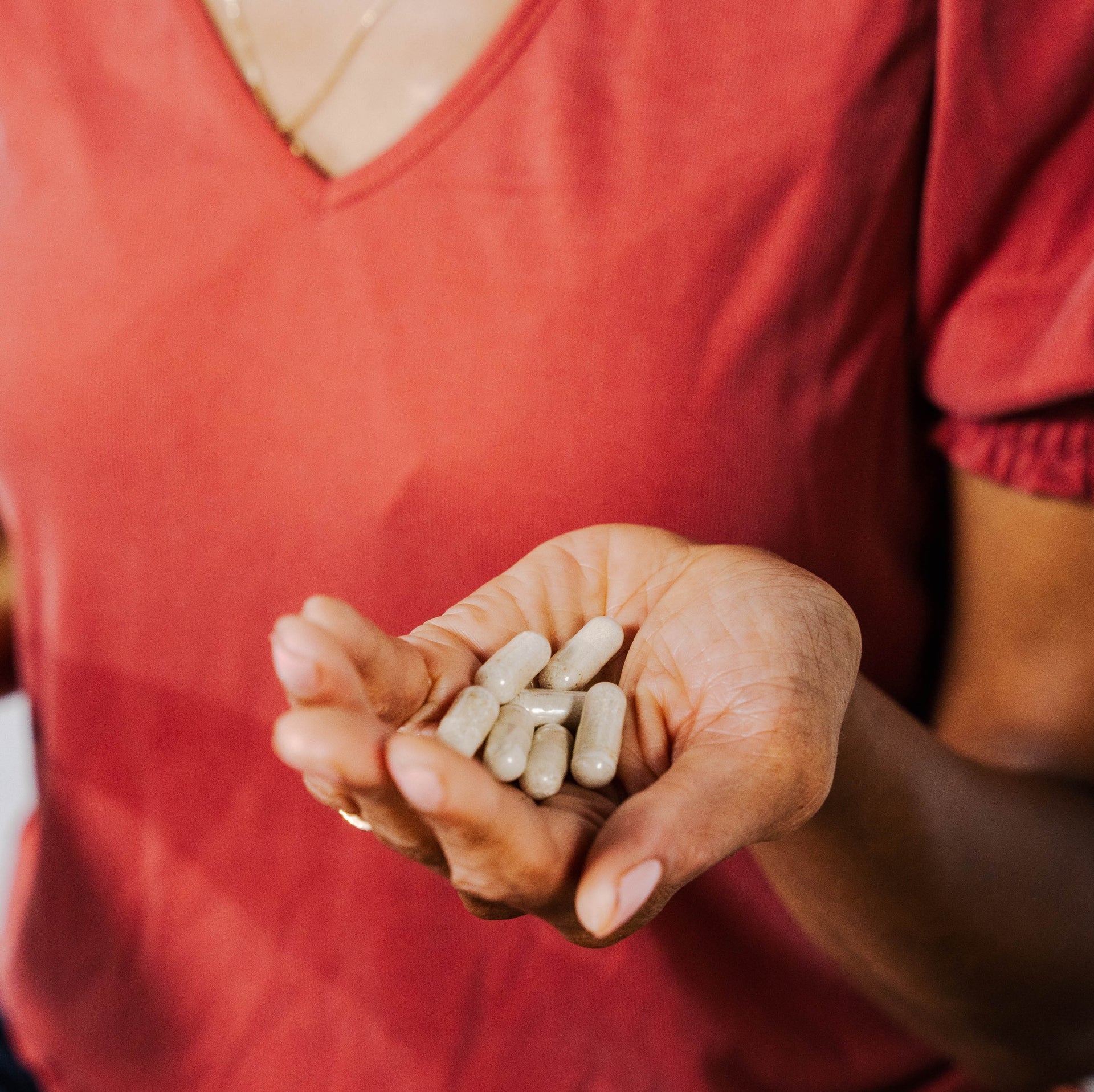When you take DHEA during the preconception period, do you stay on DHEA once pregnant? If you stop, when? Those are two questions we hear a lot from women on the journey. Although DHEA is actually a key ingredient of a hormone that maintains a healthy pregnancy, we – and doctors – recommend stopping DHEA once pregnant. Here’s why.
Should you stop taking DHEA once pregnant?
Fertility specialists at the Center for Human Reproduction, the IVF center that introduced supplementation with DHEA to support female reproductive health, recommend yes, you should stop taking DHEA once pregnant.
Is DHEA unsafe during pregnancy?
The short answer is that we don’t know for sure. There simply isn’t enough safety studies conducted on DHEA during pregnancy to come to a definitive answer.
Some women end up taking DHEA in the early phase of the pregnancy – because many of us don’t know that we are pregnant for the first 4-6 weeks. Or possibly longer if you have irregular cycles.
If this is you, don’t worry; 50-75 mg/day of DHEA, as typically recommended for female reproductive health, for a few weeks into the pregnancy is unlikely to do harm to the baby.
For one, this overlap has always been there for many women for nearly the two decades DHEA supplementation has been around, and there hasn’t been a report of it harming the pregnancy.
Another reason you don’t need to worry too much: The body produces a lot more DHEA during pregnancy than usual, and the small amount you take as a supplement is unlikely to make a noticeable difference.
Why you may be concerned about taking DHEA during pregnancy
Excessive androgens (male hormones, like testosterone) during pregnancy have been shown to be potentially harmful to the baby, both short- and long-term. Animal and epidemiological studies have suggested that abnormally high levels of androgens during pregnancy (from conditions like PCOS, preeclampsia or adrenal tumors; or due to exposure to environmental endocrine disruptors like BPA) may have negative consequences like delayed growth in utero, future reproductive and metabolic issues and behavioral problems in the baby.
While taking DHEA appropriately, as directed by your doctor, is unlikely to raise your androgen levels to such unhealthy levels, this is why some women feel apprehensive about accidentally taking DHEA in the early stages of pregnancy – and why doctors recommend stopping DHEA once you know you are pregnant. (More on this later.)
What does DHEA do in the body during pregnancy?
During pregnancy, your DHEA levels are naturally higher than when you were not pregnant. In the first and second trimesters, DHEA levels keep rising, until it peaks and stabilizes in the third trimester.
And this is for a good reason: DHEA is the source of a key female hormone, estriol, that maintains a healthy pregnancy.
DHEA is used to make pregnancy-supporting estriol
Interestingly, the increase in the mom’s DHEA levels during pregnancy is thanks to the huge amounts of DHEA produced by the baby’s adrenal glands. This extra DHEA is used up in the placenta to produce estrogens – estriol in particular. As much as 100 mg of estriol is produced from fetal DHEA-S each day toward the end of the pregnancy. Reflecting this increased estrogen production, studies have found that the usage rate of DHEA-S increases by up to 10-fold toward the end of the pregnancy.
Estriol plays several important roles in maintaining a healthy pregnancy:
- It helps the uterus grow to accommodate the growing the baby.
- Estriol also promotes the development of the placenta, which supplies oxygen and nutrients to the baby and removes its waste materials.
- As the pregnancy progresses, estriol promotes blood flow and prepares the breasts for lactation.
Your body relies on the DHEA produced by the baby to synthesize this all-important estriol. Estriol, in turn, helps maintain the pregnancy and gets your body ready for breastfeeding after birth. Because of this, doctors measure the levels of estriol in the second trimester to make sure your pregnancy is progressing normally. It’s a part of the triple marker or quad marker screening for genetic problems in the baby.
DHEA may help the mom’s immune system embrace the fetus
The increase in DHEA production has also been suggested as one reason the maternal immune system can accommodate the baby during pregnancy. Half of the fetus’ DNA comes from the father, so without this modification in how the mom’s immune system works, it would attack the fetus as an invader. The rise in immunomodulatory DHEA (and DHEA-S) during the first and second trimesters may help the immune system adapt to the presence of the baby.
Why do doctors recommend against DHEA during pregnancy?
If DHEA plays important physiological roles during pregnancy, why do doctors recommend against taking it during pregnancy? The reasons are two-fold:
- First, during pregnancy, we want to be extra cautious. Given that DHEA hasn’t been proven completely safe during pregnancy, it’s better to stop taking it, unless there’s a pressing need that outweighs the potential risk.
- The second reason is related to that “need” part. Think back to the reason you have been taking DHEA: To support your ovarian health. Since you are now pregnant, you don’t need additional DHEA to support the hormonal environment of your ovaries anymore. Your body – in concert with the baby – naturally produces more, too, as we saw above.
When should you stop taking DHEA?
The doctors at the Center for Human Reproduction have women stay on DHEA until the second positive pregnancy test. In clinical settings like this, doctors use a blood test that measures the levels of hCG (human chorionic gonadotropin, also known as the “pregnancy hormone”). The test it repeated to confirm that the pregnancy is progressing as it should before women "graduate" from their preconception DHEA routine.
If you are trying naturally without a doctor’s help, though, you’ll first find out that you may be pregnant via a urine test done at home. In this case, we recommend stopping DHEA once you see a positive pregnancy test.
Please reach out if you have any questions about DHEA before, during or after pregnancy. We are with you.









